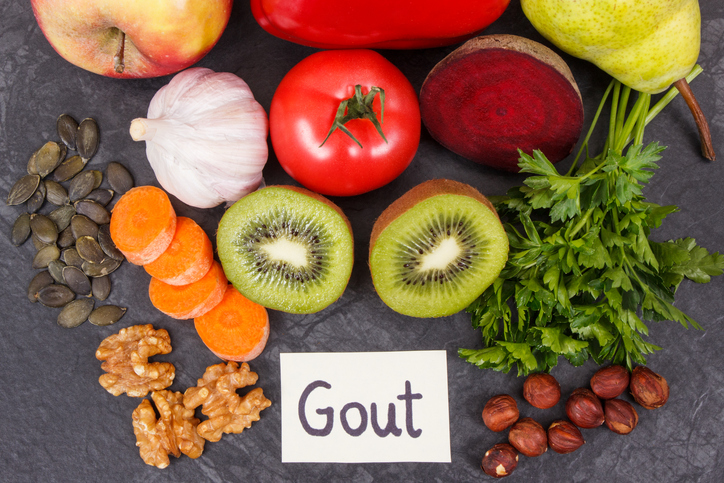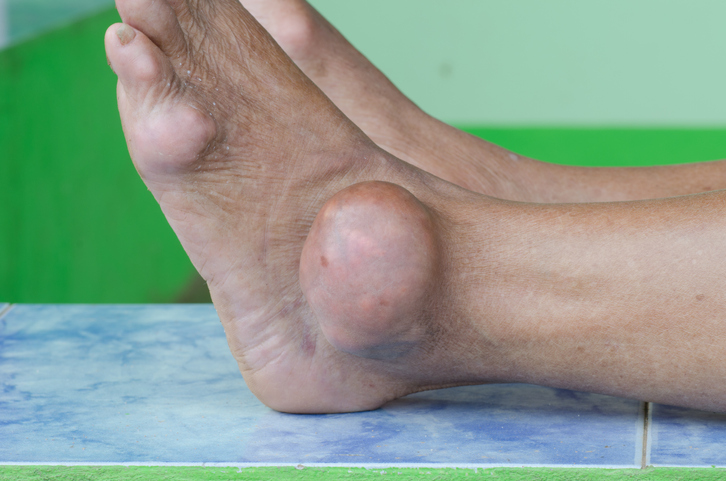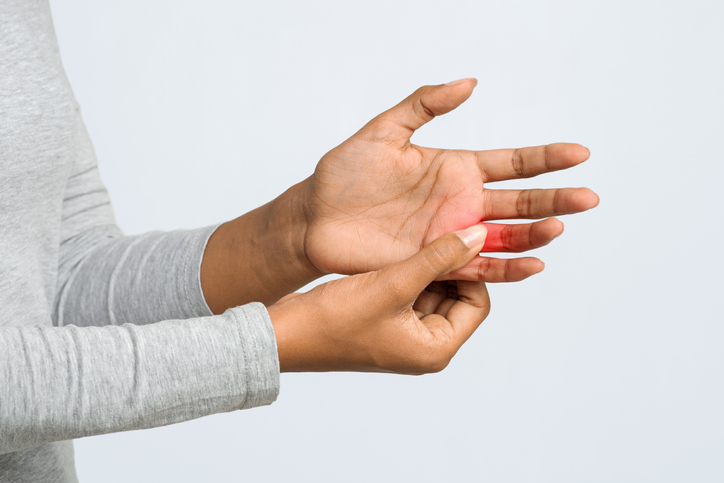Pain
Preventing Gout Attacks

What is gout?
Gout is a complex form of arthritis that can develop when the blood contains high levels of uric acid. If the body produces too much uric acid or the kidneys excrete too little uric acid, it can build up in the blood and form sharp urate crystals in or around specific joints, most commonly the joint at the base of the big toe.
Gout attacks often occur suddenly and cause intense pain. The affected joint becomes hot, swollen, red, and extremely tender to the touch. A sensation that the joint is “on fire” is common, and even the weight of a sheet on the affected joint is extremely painful. Acute gout attacks typically last 3-10 days. Symptoms are not present between gout attacks. However, if left untreated, gout can become chronic and cause permanent damage to the affected joints.
Dietary considerations
Foods high in purines can trigger a gout attack. As the body digests purines, uric acid is produced as a waste product. Gout prevents the efficient removal of excess uric acid. Foods can either raise or lower uric acid levels.
Avoid foods that can trigger a gout attack
- Organ meats, such as liver, kidneys and brain
- Red meats, such as veal, lamb and pork
- Game meats, such as pheasant, veal and venison
- Shellfish, such as scallops, crab, shrimp and roe
- Fish, such as anchovies, haddock, herring, mackerel, sardines, trout and tuna
- Foods high in sugar, such as honey, agave nectar, and high-fructose corn syrup
- Yeast, such as brewer’s yeast and other yeast supplements
- Refined carbs, such as white bread, cakes and cookies
- Alcohol, such as beer and wine
- Beverages high in fructose or sugar, such as fruit juice and sugary sodas
Enjoy foods that reduce uric acid levels
- Low-fat dairy products
- Soy products
- Vitamin C supplements
- Cherries or cherry juice with no added sugar
Enjoy foods low in purine
- Fruits and vegetables
- Low-fat dairy products
- Eggs
- Legumes, nuts and whole grains
- Coffee and tea
- Herbs and spices
- Plant-based oils, such as coconut, canola, olive, or flax oil
Enjoy certain foods in moderation (approximately 4–6 ounces, 2-3 times per week)
- Meats, such as chicken and lean beef
- Fish, such as fresh or canned salmon
Lifestyle modifications
Various lifestyle modifications can lower the risk of gout attacks, including healthy weight loss, exercise, and proper hydration. Lifestyle modification tips include the following:
- Lose excess weight. Excess weight can disrupt the way the body responds to insulin, increasing uric acid levels.
- Avoid crash diets. Rapid weight loss increases the risk of gout attacks.
- Exercise regularly. Exercise not only helps with weight management, but it can also decrease the risk of gout attacks by lowering uric acid levels.
- Stay hydrated. Water intake helps the body remove excess uric acid; therefore, keeping the body properly hydrated can reduce the risk of gout attacks.
Medications
Medications to prevent gout attacks include, but are not limited to, the following:
- Xanthine oxidase inhibitors (XOIs) limit the amount of uric acid the body produces.
- Uricosuric medications improve the kidneys’ ability to remove uric acid.
















